In this series of posts, we sit down with a few of the keynote speakers of the 230th AAS meeting to learn more about them and their research. You can see a full schedule of their talks here!
Astrophysicist by day, rockstar by night, Konstantin Batygin is a key player in his field of planetary science. 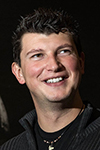
Based at Caltech, Batygin is an Assistant Professor of Planetary Science in the department of Geological and Planetary Sciences in California. He will be giving a keynote talk at #AAS230 entitled “Planet Nine from Outer Space”.
Batygin describes his path into astronomy as “chaotic”. Before university the plan was to study “engineering, physics or something where you can get a job after you graduate”. Naturally this was always a “plan B” as his band, The Seventh Season, was destined to become the “next Metallica”. However on his first day of classes at UC Santa Cruz, Batygin started talking to a complete stranger who said that astrophysics was “dope”, so he thought “how bad could it be?” and switched courses. Luckily these were not famous last words for Batygin and he soon got involved with undergraduate research. Initially Batygin was fascinated by galaxies, but eventually chose to pursue a more independent project in planetary science alongside Gregory Laughlin dealing with a very important question — what is the ultimate fate of the solar system?
As a field of research, planetary science and solar system evolution clearly captured Batygin’s attention and never let him go. Batygin states that “we’re in a new era of evolution with ALMA and SPHERE” as we finally have the “observational facilities to work out what happens in the first stages of planetary formation”, and compares it to the leap in planetary science that arose after the detection of exoplanets. Currently he is working on the properties of a self-gravitating disk, and what happens if you send or “ping” a signal along the disk. It’s not an issue of gravitational stability but a question of “how signals travel through a self-gravitating disk”. The ultimate goal of this work is not to use immense computing power to do simulations but to create fundamental equation to describe this problem. Batygin has already made a lot of progress with this aspect of his work.
When reflecting on his own experiences, Batygin suggested that students should get involved in research as early as possible. Why? Because for the first couple of years, “you’re going to suck horribly — it’s like playing guitar” and it’s good to get this period out of the way mostly “unnoticed”. Not only does this mean you’ll be “pretty good” by the time you graduate, but you’ll be able to make a lot of progress in your field before grad school. His biggest piece of advice to grad students was to “twist their supervisor’s arm into taking a sabbatical”. For Batygin this resulted in some time in the south of France allowing for the awful realisation that he knew “nothing about dynamics”, but also presented an opportunity to acquire “different styles of thought” and it’s because of this that Batygin highly advocates moving around for research.
During his talk Batygin will discuss the evidence for his more popular research into a potential distant giant planet in our own Solar System — the elusive Planet Nine. Proposed by Batygin and Brown in 2016 to explain the unexpected clustering of Kuiper belt objects, this greater than 10 solar mass object is yet to be discovered meaning scientists have reached out to the general public for help. To hear more about Planet Nine, make sure you attend Batygin’s talk on June 6th, 3:40 pm at #AAS230!

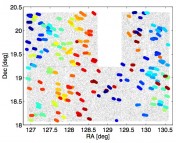
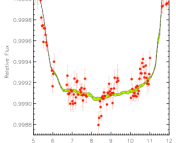
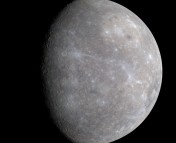
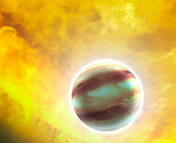
Trackbacks/Pingbacks